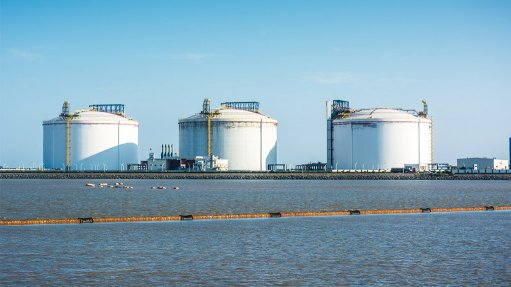Sustainable cities integral to combating climate change
Combating the effects of climate change will require a collective response from developed and developing cities, which need to pursue the development of sustainable cities, regardless of the disparity between the biggest contributors to and those most affected by climate change.
This was a key message outlined at the C40 Financing Sustainable African Cities Forum, held in Johannesburg, on Wednesday.
The world does not have much time left to limit a rise in global temperatures and good leadership is needed to take the necessary steps to reach that goal, City of Johannesburg executive mayor Herman Mashaba told delegates attending the forum.
He noted that developing cities faced the challenge of having to expand economic growth, provide water, electricity and other resources, and keep dissent at bay when this does not happen as quickly as residents want.
Owing to this, the issues of climate change and sustainably were not as big a priority for developing cities as they should be, he said.
While he acknowledged that climate change was largely caused by developed nations, he cautioned against developing nations becoming complacent and considering themselves exempt from the stringent requirements needed to mitigate climate change.
“Fellow Africans, let us not delude ourselves that we are somehow exempt from taking responsibility. Poverty and lack of development does not exempt us from taking responsibility for tackling climate change and pursuing sustainability.”
Mashaba emphasised that was especially important for developing cities to focus on sustainability, given that they face the brunt of climate change, despite not being the biggest contributors.
Further, when these cities are affected, they do not have the same capacity as developed nations to recover from the effects of climate change. This has been evidenced by recent events in Mozambique, for example.
“It is integral to put sustainably front and centre of cities’ daily work.”
However, Mashaba noted that this undertaking would be an expensive exercise. This was further exacerbated by the fact that finance was a significant challenge for many developing cities.
Accra mayor Mohammed Adjei Sowah also emphasised the importance of cities globally paying greater attention to the issue of climate change.
He posited that environmental issues were at the heart of development issues currently. “Sustainable issues are development issues.”
“Today, climate change is not an abstract issue but a development issue in Africa and the world.”
He noted that his city, among others, had already begun to experience the effects of climate change, for example, serial floods.
Therefore, he stressed that the sustainability of every infrastructure project being undertaken from here on out had to be assessed before construction got under way.
He noted, however, that African cities were mindful of the fact that securing capital to finance projects that promote sustainability could be a challenge.
Cities had to contend with how to direct inflows and outflows of funds for sustainability projects and had to make central governments aware of such matters.
Tshwane executive mayor Stevens Mokgalapa reiterated that although climate change was not developing nations’ doing, these States were feeling the brunt of the effects thereof.
He emphasised that the choices made now about infrastructure could lock cities into heavy emissions for years to come; therefore, this placed cities at the forefront in making important changes.
He highlighted that Tshwane was making conscious decisions to respond to climate change, by committing to making the city more resource efficient and emitting lower carbon emissions, for example.
He outlined a number of measures taken by the city in this regard. This included the introduction of electric vehicles into the city’s fleet and securing compressed natural gas-powered buses. The city was also considering the possible use of electric buses.
Further, the city was promoting nonmotorised transport, such as cycling, especially in townships.
Comments
Announcements
What's On
Subscribe to improve your user experience...
Option 1 (equivalent of R125 a month):
Receive a weekly copy of Creamer Media's Engineering News & Mining Weekly magazine
(print copy for those in South Africa and e-magazine for those outside of South Africa)
Receive daily email newsletters
Access to full search results
Access archive of magazine back copies
Access to Projects in Progress
Access to ONE Research Report of your choice in PDF format
Option 2 (equivalent of R375 a month):
All benefits from Option 1
PLUS
Access to Creamer Media's Research Channel Africa for ALL Research Reports, in PDF format, on various industrial and mining sectors
including Electricity; Water; Energy Transition; Hydrogen; Roads, Rail and Ports; Coal; Gold; Platinum; Battery Metals; etc.
Already a subscriber?
Forgotten your password?
Receive weekly copy of Creamer Media's Engineering News & Mining Weekly magazine (print copy for those in South Africa and e-magazine for those outside of South Africa)
➕
Recieve daily email newsletters
➕
Access to full search results
➕
Access archive of magazine back copies
➕
Access to Projects in Progress
➕
Access to ONE Research Report of your choice in PDF format
RESEARCH CHANNEL AFRICA
R4500 (equivalent of R375 a month)
SUBSCRIBEAll benefits from Option 1
➕
Access to Creamer Media's Research Channel Africa for ALL Research Reports on various industrial and mining sectors, in PDF format, including on:
Electricity
➕
Water
➕
Energy Transition
➕
Hydrogen
➕
Roads, Rail and Ports
➕
Coal
➕
Gold
➕
Platinum
➕
Battery Metals
➕
etc.
Receive all benefits from Option 1 or Option 2 delivered to numerous people at your company
➕
Multiple User names and Passwords for simultaneous log-ins
➕
Intranet integration access to all in your organisation


















